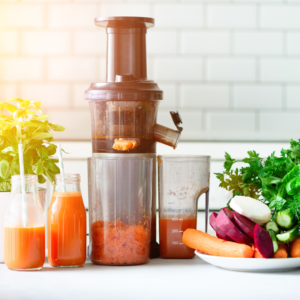Managing diabetes is crucial to prevent complications and maintain a healthy lifestyle. Diet plays a significant role in regulating blood sugar levels and overall health. Whether you have type 1 or type 2 diabetes, making mindful food choices can help stabilize glucose levels, control weight, and reduce the risk of complications.
Understanding Diabetes and the Role of Diet
Diabetes occurs when the body either doesn’t produce enough insulin or becomes resistant to it. Insulin helps regulate blood sugar, and without it, glucose levels can rise dangerously. Effective diabetes management combines medication, regular exercise, and a healthy diet.
A balanced diet is essential for preventing complications such as heart disease, kidney damage, and nerve problems. It also helps in controlling weight, reducing insulin resistance, and maintaining stable blood glucose levels.
Key Principles of a Diabetes-Friendly Diet
Opt for Low Glycemic Index (GI) Foods:
The Glycemic Index (GI) measures the rise in blood sugar. Low-GI foods are digested slowly, leading to gradual increases in blood sugar. This helps avoid sharp spikes and dips in glucose levels. Examples include whole grains like oats, quinoa, and barley, as well as non-starchy vegetables such as leafy greens, cucumbers, and tomatoes.
Manage Carbohydrate Intake
Carbohydrates impact blood sugar levels the most, but you don’t need to eliminate them. Focus on complex carbohydrates that get digested more slowly. Whole grains, vegetables, and legumes are good sources of fiber-rich complex carbs, helping to regulate blood sugar. Be mindful of portion sizes and spread carb intake evenly throughout the day.
Include Fiber-Rich Foods
Fiber slows sugar absorption, helping to avoid blood sugar spikes. It also aids digestion and promotes satiety, which can assist with weight management. Foods rich in fiber include beans, lentils, whole grains, fruits, and non-starchy vegetables. Incorporating these into meals improves blood sugar control and overall health.
Focus on Healthy Fats
Healthy fats improve insulin sensitivity and support heart health. Such fats are majorly found in foods like avocados, nuts, seeds. Also, fatty fish like salmon and mackerel. Avoid trans fats and saturated fats, commonly found in processed and fried foods, as they worsen insulin resistance and raise the risk of heart disease.
Choose Lean Protein Sources
Protein stabilizes blood sugar and keeps you feeling full, reducing cravings. Lean protein sources such as chicken, turkey, tofu, fish, and eggs provide essential nutrients without spiking blood sugar. Including protein in each meal ensures sustained energy throughout the day.
Practice Portion Control
Portion control is critical, even with healthy foods. Overeating can still lead to weight gain and elevated blood sugar. Using smaller plates and measuring portions can be helpful. Also practicing mindful eating habits can be helpful in understaing the portion sizes. This helps regulate calorie intake and prevents fluctuations in blood glucose.
Sample Diabetes-Friendly Meal Plan
Breakfast:
Oatmeal made with water or unsweetened almond milk, topped with fresh berries and chia seeds
A boiled egg or small serving of Greek yogurt for protein
Lunch:
Grilled chicken salad with mixed greens, tomatoes, cucumbers, and a drizzle of olive oil and lemon juice.
A serving of quinoa or a whole grain roll for complex carbohydrates.
Snack:
A small handful of almonds or an apple.
Dinner:
Baked salmon with steamed broccoli and a small serving of sweet potato or brown rice
Sautéed leafy greens like spinach or kale in olive oil with garlic.
Snack:
A small portion of cottage cheese or a hard-boiled egg
Tips for Successful Diabetes Management
Stay Hydrated
Water is vital for managing diabetes. Dehydration can elevate blood sugar levels, so make sure to drink plenty of water. Unsweetened tea or herbal beverages are also good options.
Plan Your Meals in Advance
Meal planning helps avoid unhealthy choices and keeps you on track. Preparing meals and snacks ahead of time makes it easier to stick to your diet and prevent blood sugar spikes.
Avoid Sugary Drinks
Sugary drinks, such as sodas and fruit juices, cause rapid blood sugar increases. Opt more for liquids like water, unsweetened tea, or sparkling water with a splash of lemon.
Monitor Your Blood Sugar
Regular blood sugar monitoring helps you understand how different foods affect your glucose levels. Keeping track enables you to adjust your diet for better blood sugar control.
Seek Professional Guidance
A registered dietitian or nutritionist can provide personalized advice and help tailor a meal plan based on your specific needs and health goals.
A health management program in Mumbai can also provide the necessary tools and support to successfully manage diabetes.
Conclusion
A balanced, nutrient-rich diet is essential for effective diabetes management. By focusing on whole foods like lean proteins, healthy fats, fiber-rich vegetables, and low-GI carbohydrates, you can better control blood sugar levels and lower the risk of complications. Diabetes management requires consistent effort, but with the right diet and lifestyle choices, you can enjoy a healthier, more fulfilling life. A health management program in Mumbai can offer guidance and help you stay on track with your health goals. Always consult your healthcare provider to develop a diet plan tailored to your individual needs.







